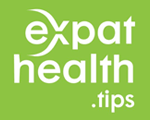In the case of an emergency, you can use the following general numbers:
- Police - 191
- Fire Services - 192 / 999
- Ambulance - 193
Each local region has its own phone number lists for police and fire stations.
As for the quality of emergency services in Ghana, a survey conducted in 2012 revealed the majority of hospitals in Ghana were under-prepared (facilities, knowledge, and medical teams), for emergencies.
At the end of 2009 Ghana had only 26 ambulances spread across the country. The waiting time for an ambulance to come can consequently be very long. Many people will make their own way to a hospital if possible.
Emergency services are covered by the NHIS, including surgical, paediatric, obstetric/gynaecological, road traffic accident and medical emergency cases. You consequently won't have to pay anything for those kinds of treatments.
Travel precautions
Every expat should be aware of food and water which can trigger illnesses in those not accustomed to the region.
As far as water is considered, avoid ice cubes, tap and fountain water which may be unclean. Buy bottled water and boil tap water before using it.
Avoid buying street food and local dairy products. Check your food is always cooked correctly.
Mosquitoes in the region carry malaria and dengue fever. Use a mosquito repellent with at least 20% DEET. Wear long trousers and sleeves when going outside, especially at dusk when mosquitoes are most active.
The recommended vaccines for Ghana are:
- Typhoid
- Hepatitis A and B
- Rabies (if you plan on visiting rural areas or spending time around animals).
- Yellow fever vaccine for those aged 9 months or older.
- Boosters for all routine childhood vaccines if necessary.
The rate of HIV infection is high in Ghana so you should never have unprotected sex and don’t share syringes.




